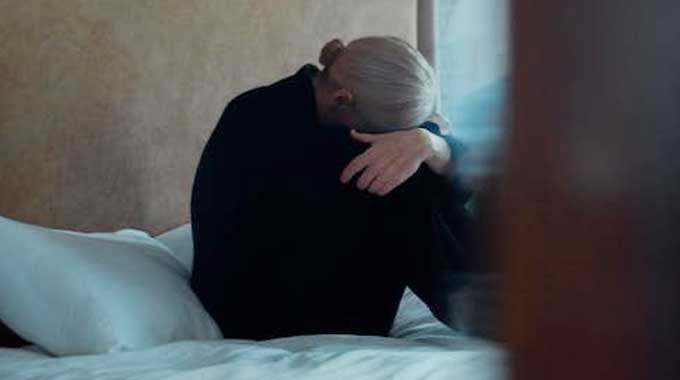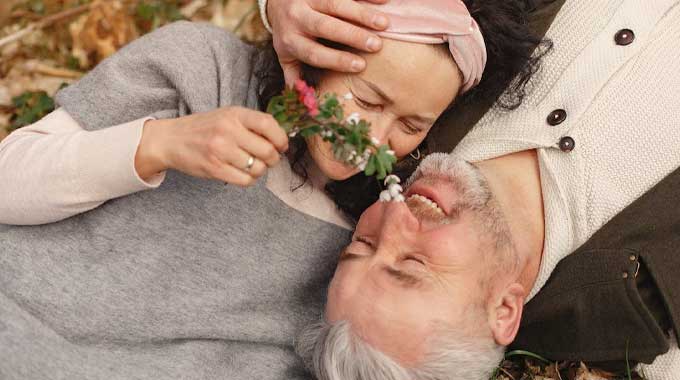Many scientists classify addiction as a chronic disease. This means that, while relapse is not inevitable, it is a normal part of the recovery process. Relapse statistics show that relapse rates are about the same as, or less than, other chronic diseases like diabetes or asthma.
While nobody wants to relapse, it should not be seen as a failure. Instead, it is a chance to identify what went wrong, develop your skills, and continue your recovery journey with even more strength and resilience.

Exploring Addiction as a Chronic Relapsing Illness
In recent decades, extensive scientific research has explored the nature of addiction and the science that lies behind it. Brain imaging studies and clinical trials have uncovered useful information about the causes of addiction, what addiction looks like, and how we can treat it.
The National Institute on Drug Abuse classifies addiction as a chronic brain disease. This means that addiction involves physical changes in the brain that may be long-lasting or even permanent. It also means that addiction cannot be cured – like other chronic diseases, there is always a chance of relapse.
How Does Addiction Affect the Brain?
Scientists have found that addiction causes long-term physical changes in certain brain regions, particularly along the reward pathways. Reward pathways are a natural part of how the brain works, helping to reinforce life-preserving functions.
When we engage in beneficial activities, our body releases small amounts of certain hormones, including dopamine and endorphins. This signals to our body that the activity is useful, altering neuronal connectivity along the reward pathway and making it more likely that we will do the activity again.
When you take an addictive drug, it releases large amounts of these hormones. This hijacks the reward pathway and, over time, results in dramatic changes along the pathway that cause strong urges (cravings) to seek and use the substance.
These changes can be long-lasting or even permanent, causing people to experience cravings even after long periods of abstinence – and in some cases, this leads to relapse.
What Are Triggers?
Triggers are environmental cues, feelings, or other stimuli that someone connects with substance use. While someone may experience a craving at any time, they are more likely to experience one when they encounter a trigger. Triggers are one of the main reasons that people relapse.
Triggers and cravings happen because of the physical effects of addiction on the brain. Changes along the reward pathways connect the trigger with substance use, leading to the craving. Because these changes are long-lasting, triggers can cause drug cravings after years in recovery. However, effective addiction treatment can help you to manage triggers and overcome cravings, preventing a full relapse.
Can Addiction Treatment Reverse Brain Changes?
Brain imaging suggests that addiction treatment can go some way to reversing brain changes, thereby reducing the frequency and intensity of cravings. Your brain also recovers remarkably well on its own, though it may never recover fully.
Even when changes are permanent, recovery is still very much possible. Part of recovery is learning valuable skills so you can identify triggers, manage cravings, and stay sober.
How Do Substance Abuse Treatment Programs Help to Prevent Relapse?
Effective substance abuse treatment programs aim for long-term recovery. This means that they address the underlying causes of addiction, teaching people the skills they need to cope with cravings and helping people to avoid situations or feelings that may cause them to return to drug use.
Some addiction treatment options that support relapse prevention include:
Cognitive Therapy
Cognitive-behavioral therapy (CBT) is a type of talk therapy that focuses on the interactions between our thoughts and behaviors. During CBT sessions, your therapist will work with you to identify triggers of drug use and develop strategies to avoid them or coping skills to manage them. This may include “riding the wave”, relaxation techniques, or speaking to a friend.
Dual Diagnosis Programs
Many people living with a substance use disorder also struggle with a co-occurring mental health condition. Co-occurring disorders can drive drug abuse, which may offer immediate relief from emotional distress. If unaddressed, co-occurring disorders can cause someone to turn back to substance use even after years of recovery.
Treating underlying mental health issues alongside addiction is a vital part of relapse prevention and lasting recovery. Dual diagnosis programs treat both conditions simultaneously, promoting holistic healing and long-term abstinence.
Comprehensive Aftercare
The recovery process doesn’t end once you leave a treatment center. Instead, life-long recovery requires continued dedication, commitment, and support. Drug abuse treatment centers typically offer comprehensive aftercare programs to offer ongoing support to clients, particularly in early recovery. This may involve connecting you with local services and self-organized support groups, and developing an aftercare plan.
One component of effective aftercare is a relapse prevention plan. While relapse is a normal part of recovery, it is not inevitable, and you can take steps to avoid it. Relapse prevention plans may emphasize many of the skills learned in cognitive-behavioral therapy, such as identifying triggers and stressors and coping with cravings.
Understanding the Abstinence Violation Effect
The abstinence violation effect is a theory that emphasizes the difference between a lapse and a relapse. Just as there is a difference between eating a slice of cake and consuming all of it, there is also a difference between taking a small dose of a drug or alcohol and engaging in an extended session.
Some people tend to feel like they have failed if they take a small amount of a substance and give up on their recovery journey. They may also feel like they should “make the most” of the relapse and continue to take more of the substance. However, in reality, it’s possible to have a lapse but not a relapse, and it’s important to learn how to stop yourself after the first instance.
Many programs address the abstinence violation concept in recovery sessions. Your therapist may help you to learn how to identify lapses and to cope with them. They may emphasize lapses as something that you should expect and plan for, rather than a sign of failure.
Treating Relapse and Moving Forward
If a relapse does occur, it’s important not to feel disheartened. It does not mean you have failed in your addiction recovery journey – instead, it’s an opportunity to learn and grow. Try to avoid being hard on yourself, thinking that you don’t deserve recovery, or concluding that you won’t be able to stay sober in the long term. Relapse is normal and nothing to be ashamed of.
When a relapse occurs, there are several ways to move forward in the recovery process. If the relapse is small, you may want to enroll in a few extra counseling sessions or talk to your support group about what happened. If it’s a more serious relapse, you could seek immediate treatment in a recovery center to help you overcome the incident and continue your recovery journey.

Transformative Recovery Programs at Crossroads Antigua
Crossroads Antigua is more than just a substance abuse treatment facility. It is an oasis of peace and serenity, promoting introspection, reconnection, and lasting sobriety.
Our facilities, located on the Caribbean island of Antigua, offer a safe and supportive environment away from the distractions and confusion of life with addiction. We help clients to journey away from a life of drug abuse and embrace a fulfilling sober lifestyle. Our comprehensive range of treatment modalities combines evidence-based clinical modules with holistic methods, promoting meaningful healing for the entire person.
At Crossroads Antigua, we’re dedicated to your recovery. Every member of staff is invested in your sober future, and we’ll do what it takes to get you there. Contact us today to begin your journey.

